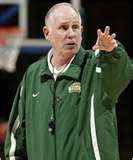
I don't drink coffee but I picked up some great thoughts on taking action and leading from the book, "It's Not About The Coffee" by Howard
Behar, the President of Starbucks International.
Take Action—Think Like a Person of Action and Act Like a Person of Action
• Create a culture of big goals, independent thinking and passionate caring for one another and the people you serve.
• Everything that works takes persistence.
• Things that get done are performed by people who possess that level of commitment.
• “The greatest use of life is to spend it for something that will outlast it.”—William James
• On Performance—“…an immutable law in business that words are words, explanations are explanations, promises are promises—but only performance is reality…Only performance is reality…only performance will give you the freedom to grow yourself”—Harold
Geneen• Passion, Purpose and Persistence are necessary to succeed
• Get the one person—one believer, doer, early adopter—who is willing to take on the challenge and stick with it and over time, perhaps sooner rather than later, others will come on board to join the cause.
• Keep going, keep taking action.
• Balance action with patience.
• Taking actions
isn’t blind pursuit.
• Wise action means, we’re guided by all our principles. We need to test and question ourselves. We can be sure that we’re on the right track when our actions are guided by our principles. Wise action requires that we listen to the truth as we pursue our passion.
• Paradox: nothing happens unless you do something, yet whatever you do needs to be thoughtfully considered.
• Enter the struggle, thoughtfully.
• Motto: “Think like a person of action, and act like a person of thought.”
• Principles of Personal Leadership—caring, listening for the truth, being accountable—all require consistent action balanced with thought and feeling.
• Without action there is no life.
• You can’t get results, you can’t experience your potential, if you don’t take action.







































